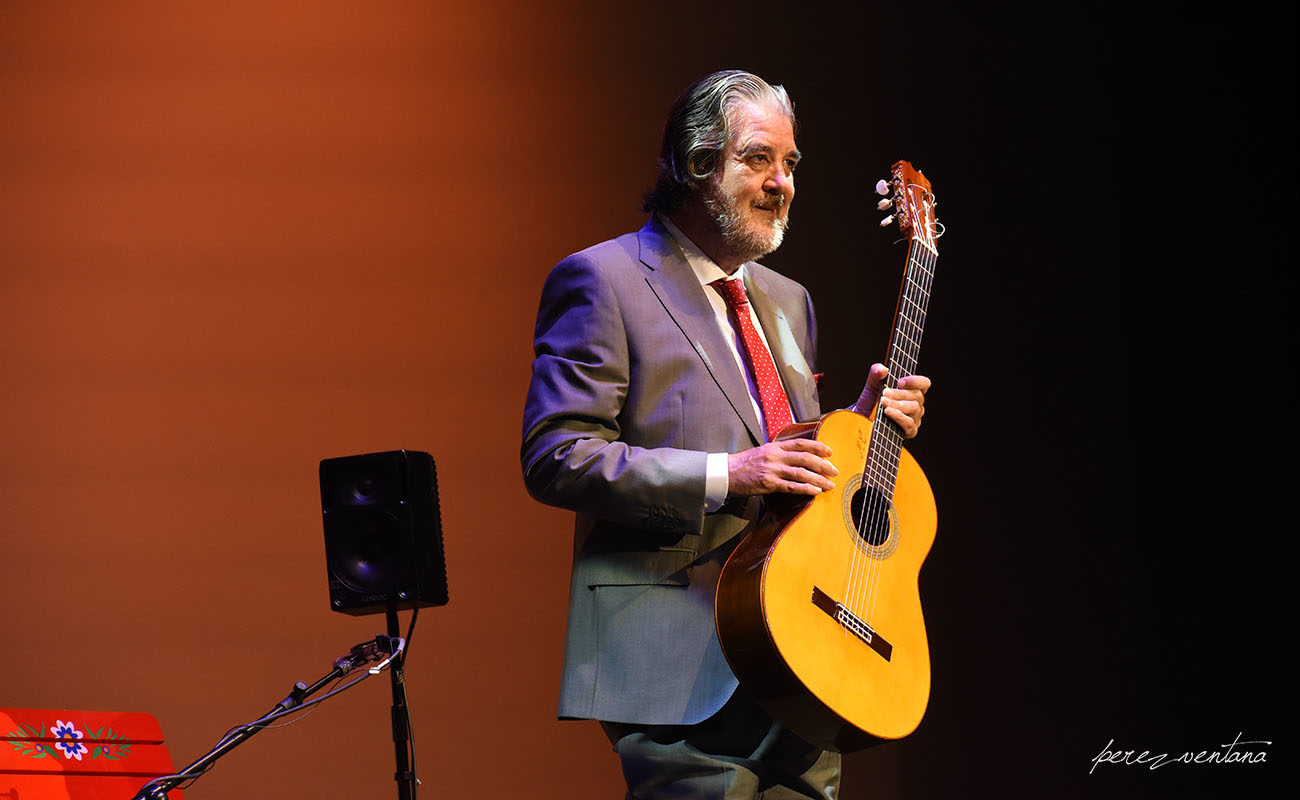Waiting for Rafael Riqueni
We are certain that Madrid will soon grant him parole, possibly before the end of the year, which would allow him to restart his career, finish many projects and have a normal life again. That is what we want and what we wish for the good of the artist and for the good of flamenco art.

It would be good news if the great guitarist and composer from Triana, Rafael Riqueni, could soon be granted parole by the Seville penitentiary center, where he has been for three months. He’s awaiting confirmation from the authorities in Madrid and then he would only need to spend the nights in jail, being free on the weekends, and anticipating a conditional sentence with which he could lead a normal life, although with obvious limitations. Rafael had many issues pending with the Spanish justice, but he went to jail for not showing up at judicial appointments, and for that he’s serving a fourteen-month sentence. He went to jail precisely at the time when he had recovered as a person and as an artist, causing indignation not only in the world of flamenco, but also in the world of music in general. Let’s not forget that Riqueni is something more than a flamenco guitarist. He’s a music personality and also a human being loved by thousands of people. When he went to jail, the social media networks burst, until his family and his representative advised against so much pressure from the media, because it would do more harm than good. Rafael Riqueni was a guitar’s child prodigy born in one of the most flamenconeighbourhoods in the world, Triana, in 1962. At the time of the artist’s childhood, it was full of artists and ambiente jondo, although years before, due to a villainous urban policy, the gipsy and the not-gipsy – paupers, mostly — were forced to emigrate to the new neighbourhoods of the Andalusian capital, the so called polígonos, those of San Pablo, the Polígono Sur or the Casitas Bajas. Rafael remained in Triana, soaking whatever was left, and while still a teenager he already sounded like the new wonder of the flamenco guitar, admired by geniuses such as Paco de Lucía and Manolo Sanlúcar, especially after the release of his first record, Juego de niños, followed by Rafael Riqueni, Mi tiempo, Suite Sevilla (in collaboration with the classic guitarist José María Gallardo, also from Seville), Maestros and Alcázar de Cristal. In a few years, he became a guitarist and composer of great reputation. In 1984 he contested the I Giraldillo del Toque, won by another important guitarist from Seville, Manolo Franco, which was a big blow for Rafael, since he had put such high hopes and invested months of work in that historic competition. However, instead of sinking, the genius started to create and release works as wonderful as those already mentioned. Yet, he also started suffering personality disorders and he entered a complicated phase of his life, which lead him to the brink, while at the peak of his career and enjoying national and international recognition. His time in Madrid, lasting twenty-five years, was useful to broaden the scope of his work, but that environment wasn’t Seville and his life took a big turn. He came back to Triana, he got to work, and when he had picked himself up, well on his way to recovery, he went to jail. Fortunately, the genius is stronger than we thought and he’s doing well, as well as possible for someone who has no freedom and is locked up in prison, something hard for anyone but more so for someone with his problems and sensibility. We are certain that Madrid will soon grant him parole, possibly before the end of the year, which would allow him to restart his career, finish many projects and have a normal life again. That is what we want and what we wish for the good of the artist and for the good of flamenco art. Not long ago I was talking about this with a 12 year old kid who wants to be a guitarist and told me, holding back tears, “I need Rafael to come back, it’s essential that he shows us the way, now that we don’t have Paco anymore”. Rafael will come back soon, certainly before the last clouds of autumn pour over Triana.




